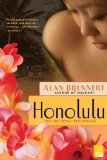Summary | Excerpt | Reading Guide | Reviews | Beyond the Book | Readalikes | Genres & Themes | Author Bio

Critics' Opinion:
Readers' Opinion:
First Published:
Mar 2009, 368 pages
Paperback:
Feb 2010, 464 pages
 Book Reviewed by:
Book Reviewed by:
Kim Kovacs
Buy This Book
To lend credibility to the sham, I had Mr. Yun send Blossom fifty dollars
in “earnest money,” which we provided.
My brother reported no trouble obtaining a passport for Blossom. I then
had him apply for a visa on her behalf as the fiancée of an American-born
man named Ronald Yun in Honolulu. Hundreds of women still entered the
country this way, and I believed it would be only a question of how long we
had to wait for the American embassy in Seoul to approve Blossom’s visa.
But though my timing had been right in approaching Father, in another
respect it could not have been worse.
Koreans were not alone, it seemed, in their antipathy toward the
Japanese. Apparently many on the American mainland, including
prominent members of Congress, were looking at the number of Japanese
immigrants in Hawai'i—and other parts of the western United States—with
mounting alarm about something they called “Oriental colonization.” It was
not a matter of race, they claimed, but of culture: Orientals, they said, were
too alien in their values, and simply would not assimilate into American society.
America’s culture and values had to be preserved against this invasion
from outside its borders.
The 1920 Japanese labor action against O'ahu plantations only fueled
Americans’ suspicions that the Japanese were out to undermine their economy
and way of life. Immigration from China had been restricted before the turn
of the century, and a so-called Gentleman’s Agreement between the United
States and Japan in 1907 stopped any further immigration from the Japanese
Empire, including Korea. The only exceptions to this had been for students
studying abroad and for “picture brides” like myself. But now, it appeared, we
had committed an unpardonable crime: We were reproducing.
Birth rates among Japanese and Koreans in the United States had soared
in recent years as laborers married, settled down, and raised families. We
were apparently doing it too well relative to the birth rate of Americans in
general, and white Americans in particular.
I was pathetically ignorant of all this as I began excitedly preparing for
Blossom’s arrival. We had purchased a two-tiered “bunk bed” for Harold
and Charlie to sleep in, thus freeing up valuable floor space in our one-room
apartment, in which we put the daybed that was to belong to my sister-inlaw.
Even though Blossom’s arrival was still months away, I began excitedly
cleaning house, making room in the closet, and clearing space for another
family member.
But then, in December 1924, word came from my brother that Blossom’s
visa to the United States had been denied.
At first I thought it was some sort of mistake, but a visit to the passport
office here in Honolulu revealed the appalling truth.
That summer, the United States Congress had passed—and President
Coolidge signed into law—the Immigration Act of 1924, or as it was sometimes
called, the Oriental Exclusion Act. Against the fear of a “Japanese
conspiracy,” it closed the door on any further Japanese immigration—
including and especially the importation of picture brides.
It closed the door on Blossom.
The only exceptions now were temporary visas for students entering “an
accredited school, college, academy, seminary, or university . . . and who
shall voluntarily depart from the United States upon the completion of such
course of study.” Desperately I attempted to enroll Blossom in the Korean
Girls’ Seminary in Honolulu, but as she had never received a formal education
of any kind in Korea, she was judged by the American Embassy not a
“qualified” applicant and a student visa was also denied her.
Excerpted from Honolulu by Alan Brennert, Copyright © 2009 by Alan Brennert. Excerpted by permission of St. Martin's Press, a division of Macmillan, Inc. All rights reserved. No part of this excerpt may be reproduced or reprinted without permission in writing from the publisher.





The House on Biscayne Bay
by Chanel Cleeton
As death stalks a gothic mansion in Miami, the lives of two women intertwine as the past and present collide.

The Flower Sisters
by Michelle Collins Anderson
From the new Fannie Flagg of the Ozarks, a richly-woven story of family, forgiveness, and reinvention.

The Funeral Cryer by Wenyan Lu
Debut novelist Wenyan Lu brings us this witty yet profound story about one woman's midlife reawakening in contemporary rural China.
Your guide toexceptional books
BookBrowse seeks out and recommends the best in contemporary fiction and nonfiction—books that not only engage and entertain but also deepen our understanding of ourselves and the world around us.